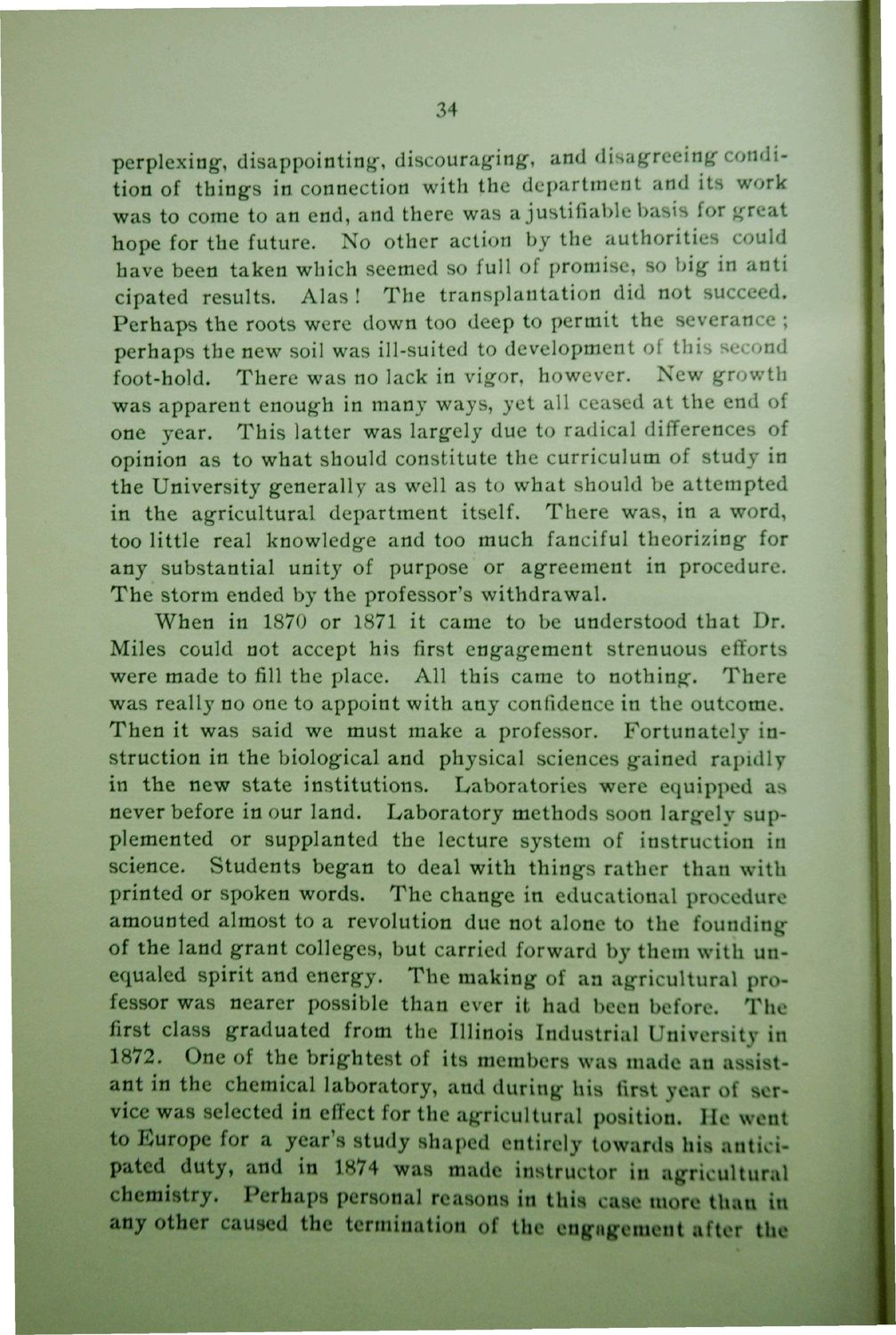| |
| |
Caption: Dedication - Ag Building
This is a reduced-resolution page image for fast online browsing.

EXTRACTED TEXT FROM PAGE:
34 perplexing-, disappointing, discouraging*, and disagreeing condition of things in connection with the department and its work was to come to an end, and there was a justifiable basis for great hope for the future. No other action by the authorities could have been taken which seemed so full of promise, so big in auti cipated results. Alas I The transplantation did not succeed. Perhaps the roots were down too deep to permit the severance ; perhaps the new soil was ill-suited to development of this second foot-hold. There was no lack in vigor, however. New growth was apparent enough in many ways, yet all ceased at the end of one year. This latter was largely due to radical differences of opinion as to what should constitute the curriculum of study in the University generally as well as to what should be attempted in the agricultural department itself. There was, in a word, too little real knowledge and too much fanciful theorizing for any substantial unity of purpose or agreement in procedure. The storm ended by the professor's withdrawal. When in 1870 or 1871 it came to be understood that Dr. Miles could not accept his first engagement strenuous efforts were made to fill the place. All this came to nothing. There was really no one to appoint with any confidence in the outcome. Then it was said we must make a professor. Fortunately instruction in the biological and physical sciences gained rapidly in the new state institutions. Laboratories were equipped as never before in our land. Laboratory methods soon largely supplemented or supplanted the lecture system of instruction in science. Students began to deal with things rather than with printed or spoken words. The change in educational procedure amounted almost to a revolution due not alone to the founding of the land grant colleges, but carried forward by them with uuequaied spirit and energy. The making of an agricultural professor was nearer possible than ever it had been before. The first class graduated from the Illinois Industrial University in 1872. One of the brightest of its members was made an assistant in the chemical laboratory, and during his first year of service was selected in effect for the agricultural position. He went to Europe for a year's study shaped entirely towards his anticipated duty, and in 1874 was made instructor in agricultural chemistry. Perhaps personal reasons in this case more than in any other caused the termination of the engagement after the
| |